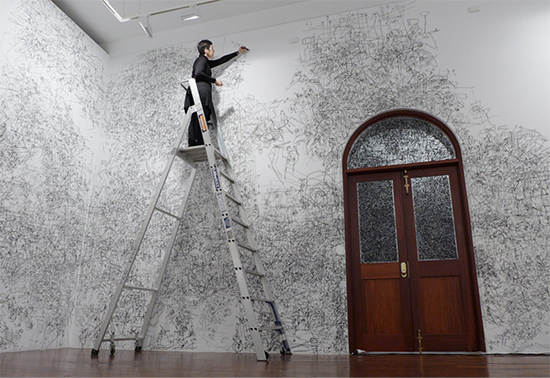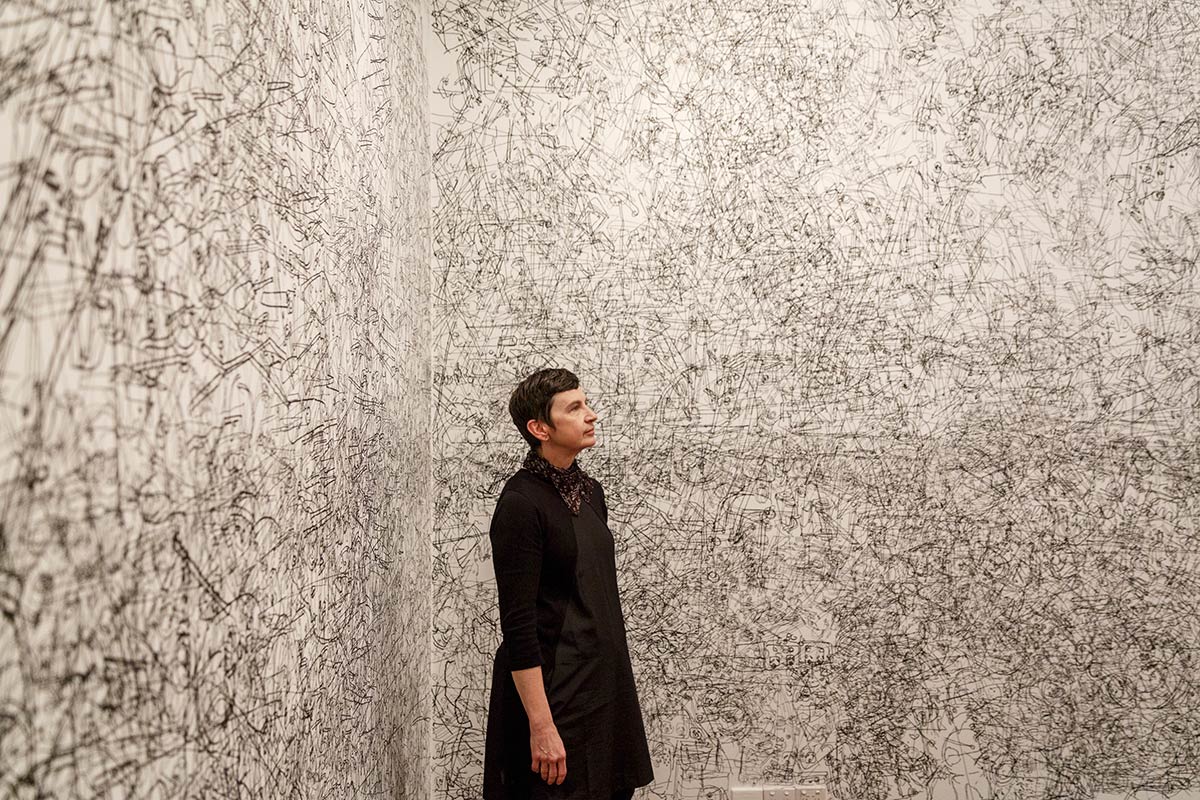Drawing: calm in chaos
Francis Russell: Gosia Wlodarczak, A Room Without A View (Extended)

Gosia Wlodarczak, A Room Without A View (Extended)
Standing amid the aftermath of Gosia Wlodarczak’s A Room Without A View (Extended), a three-week marathon of drawing that utterly transformed Fremantle Arts Centre’s Kathleen O’Connor Gallery, I couldn’t help but be reminded of a passage from Gilles Deleuze and Félix Guattari’s A Thousand Plateaus in which they linger on the figure of a child lost in the dark. They write:
“…a child in the dark, gripped with fear, comforts himself by singing under his breath. He walks and halts to his song. Lost, he takes shelter, or orients himself with his little song as best he can. The song is like a rough sketch of a calming and stabilising, calm and stable, center in the heart of chaos.”
Printed on the reverse side of this very page is a reproduction of Paul Klee’s Twittering Machine (1922), another sketchy composition, perhaps not unlike the one sung by the boy lost in the dark, taking place in a similarly lugubrious void and depicting a disconcerting bird-machine hybrid that sings some unknown alien song to a sky that both welcomes and threatens the viewer.

Gosia Wlodarczak, A Room Without A View (Extended)
The reason I was struck by a memory of Deleuze, Guattari and Klee when walking around Wlodarczak’s transformed space of manifold lines, fragments and partial figures was perhaps because her work reminded me of art’s capacity to function as a refrain—and, in a twofold sense, as a refusal and as a repeated line (as with a song). Against the void of sensory deprivation in which Wlodarczak has entombed herself—a space that was once synonymous with the isolation and deprivation of the mentally ill—a refrain has emerged, a repetition of lines that orient the viewer through a nexus of association and partial meaning, and that acts as a complaint against the stark impositions of institutions and their often bleak formality.
Wlodarczak’s work is a timely reminder of the sheer power of the most simple mark-making, as a means of situating oneself while traversing unfathomable silence or depth. Indeed, A Room Without A View (Extended) functions as a form of refusal opposing the injunction to be silent or to make sense in a manner policed and codified in advance. To draw out such a refrain might help one refrain from going mad—a strategy commodified today in the form of colouring books for the understandably anxious and disconcerted. Gosia Wlodarczak reminds us that, just as one can draw forth a song to mutate space, so too can mark-making serve to simply, and humbly, open up a calm centre in the midst of chaos.
See videos of the artist creating and discussing her work here.
Gosia Wlodarczak, A Room Without A View (Extended), in Many Happy Landings, a survey exhibition of the artist’s works; Fremantle Arts Centre, 23 Sept-12 Nov; endurance performance, 23 Sept-16 Oct
RealTime issue #135 Oct-Nov 2016






